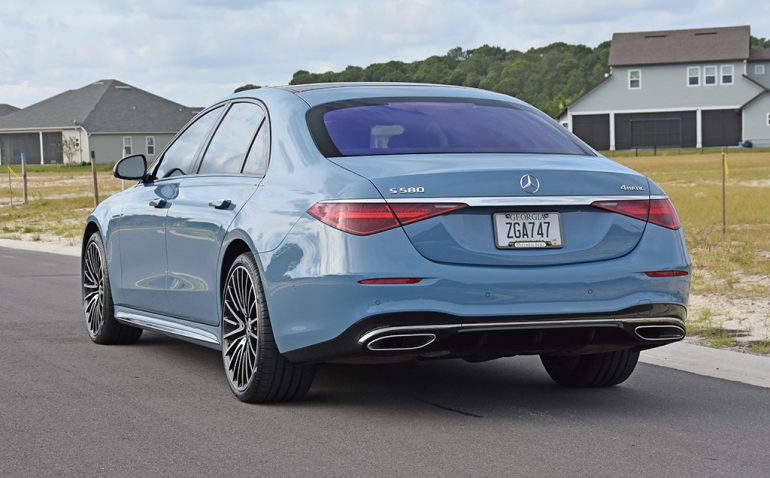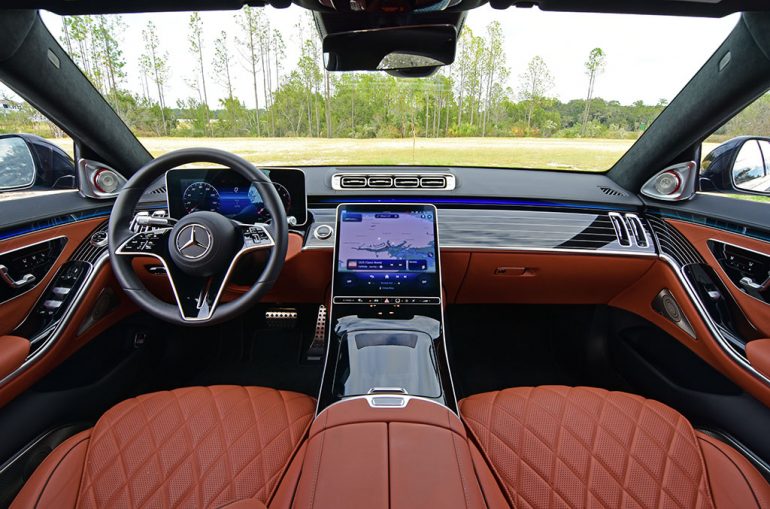
Mercedes-Benz to Replace EQS With an Electric Version Of S-Class: Automotive Addicts
Automotive
At Automotive Addicts, we’ve had our fair share of reservations about the Mercedes EQS, an EV that, while technically impressive, never quite captured our imagination. The EQS’s bulbous shape and its disconnect from Mercedes-Benz’s S-Class heritage left us wanting. This strategy is similar to what BMW did with the 7 Series and i7. The brand offered both electric and traditional powertrains in a unified design. Mercedes-Benz has followed suit with a strategy that appears to have worked well for BMW. However, Mercedes isn’t just copying BMW’s homework; they’re putting their own spin on the future of luxury sedans.
According to an interview with Autocar, as we discovered through Motor1, Mercedes CEO Ola Kallenius confirmed that the future S-Class will come in both ICE and electric versions. Mercedes has a different approach to the BMW 7 Series i7 platform. The gas-powered S-Class is based on an updated version MRA, while the electric S-Class uses the new MB.EA Large platform. This divergence in platforms suggests that while both S-Class variants may share a similar design language, they will likely differ in dimensions and proportions, with the EV potentially offering more interior space thanks to the bespoke electric architecture.
A Farewell to the EQS
The EQS, while groundbreaking in many respects, never quite hit the mark in terms of design. The EQS’ departure from the classic S-Class shape was a bold move, but it left many of us yearning for that timeless elegance the S-Class always represented. With the EQS set to receive a mid-cycle facelift in 2025 before eventually being phased out, Mercedes is making way for a more cohesive design approach that aligns better with its flagship sedan’s storied legacy.
Looking Ahead: The S-Class and Beyond
The new S-Class, in both ICE and electric forms, is expected to debut around 2030, replacing the current models. Mercedes will spend significantly more money on the 2026 update of the S-Class than it would on a normal facelift. This investment underscores the importance Mercedes places on its flagship sedan, even as it transitions to an electrified future.
Interestingly, Autocar hints that this strategy might extend to other models as well. The E-Class may follow the S-Class’s lead, and replace the EQE with an electric version. This would not only streamline Mercedes’ lineup but also make financial sense by spreading development costs across multiple models.
Challenges Ahead
Despite these exciting developments, 2024 has not been particularly kind to Mercedes’ luxury flagships. The S-Class has seen a significant drop in sales, and production is now only one shift. Mercedes is not deterred and continues to adapt to changing market conditions. The switch from an EQS-powered S-Class to a fully-electric S-Class is not only a technological change, but also a return of the timeless design and engineering that have always defined the S-Class. This is a strategy that worked for BMW and we are hopeful that Mercedes will set the standard once again for luxury sedans, this time in the age of electric vehicles.
Follow us today:





